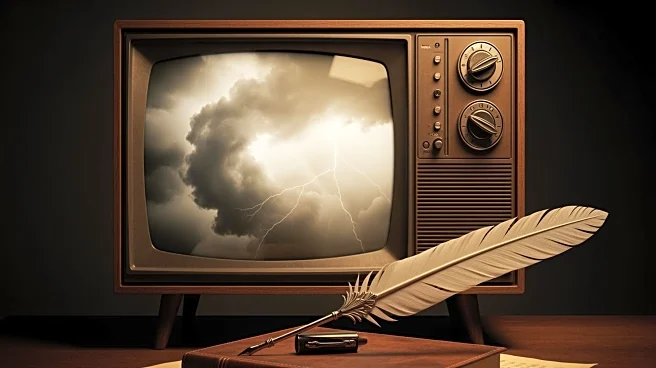Rapid Read • 8 min read
Edith Chapin, NPR's editor-in-chief, has announced her decision to step down later this year. This announcement follows Congress's approval of President Trump's plan to cut $1.1 billion in funding from the Corporation for Public Broadcasting, which supports NPR and PBS. Chapin, who has been with NPR since 2012, informed NPR's CEO Katherine Maher of her decision prior to the funding cuts. Her departure is seen in the context of the Trump administration's efforts to reduce government support for public broadcasting, citing perceived bias against conservatives.
AD
The funding cuts represent a significant challenge for NPR and PBS, potentially affecting their ability to provide diverse and independent news coverage. Smaller stations, particularly those in rural areas, may face severe financial strain, impacting their ability to deliver local news and emergency alerts. The decision to reduce funding could lead to a decrease in public access to free educational and cultural programming, affecting communities that rely on these services. The broader implications for public media include potential shifts in content and operational strategies as they adapt to reduced financial support.
NPR and PBS will need to reassess their financial strategies and operational priorities in response to the funding cuts. This may involve seeking alternative funding sources or restructuring their services to maintain operations. The impact on smaller stations could lead to closures or reduced programming, affecting local communities. Stakeholders, including public media advocates and community leaders, may push for legislative action to restore funding or support public broadcasting through other means.
The funding cuts raise questions about the role of government in supporting public media and the implications for journalistic independence. The decision may prompt discussions about the future of public broadcasting in the U.S. and the need for diverse media voices. The cultural and educational impact of reduced public media services could have long-term effects on community engagement and access to information.
AD
More Stories You Might Enjoy












